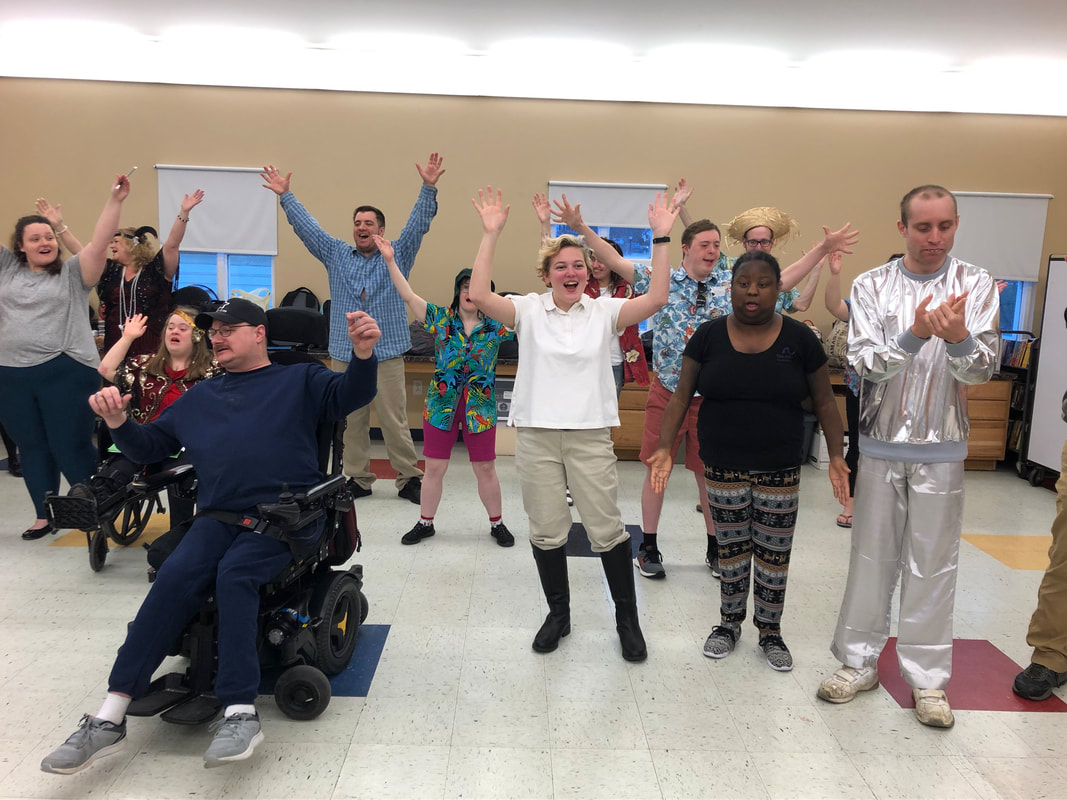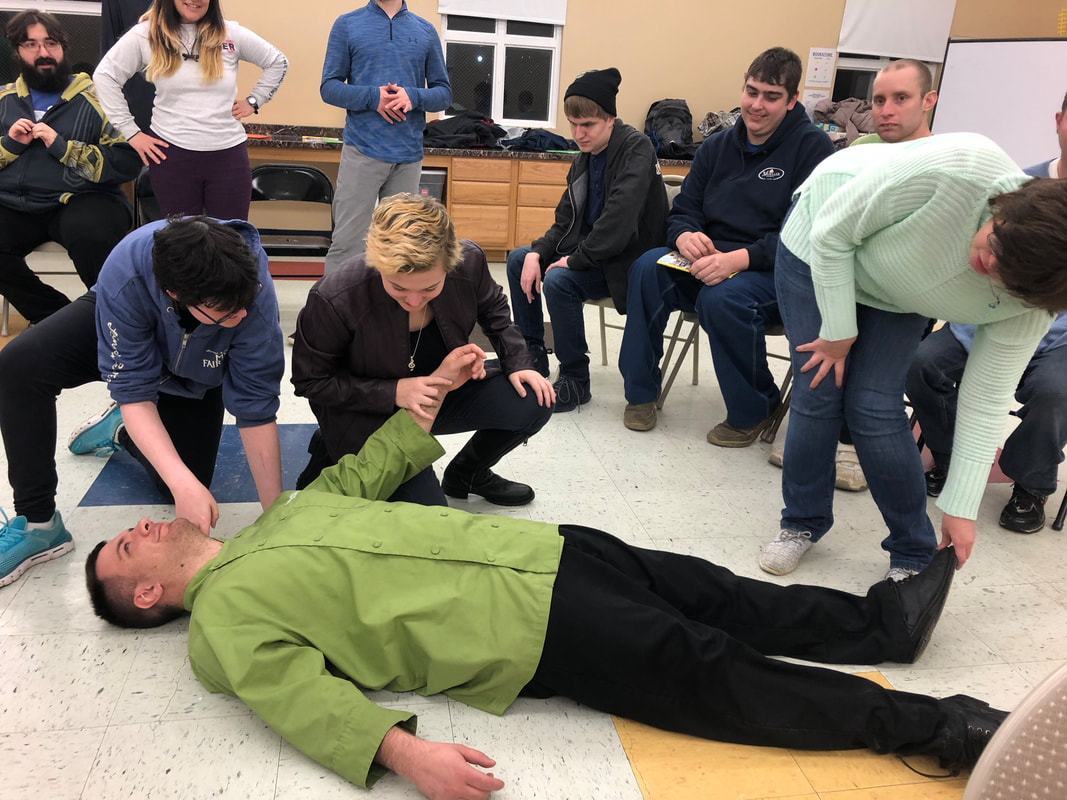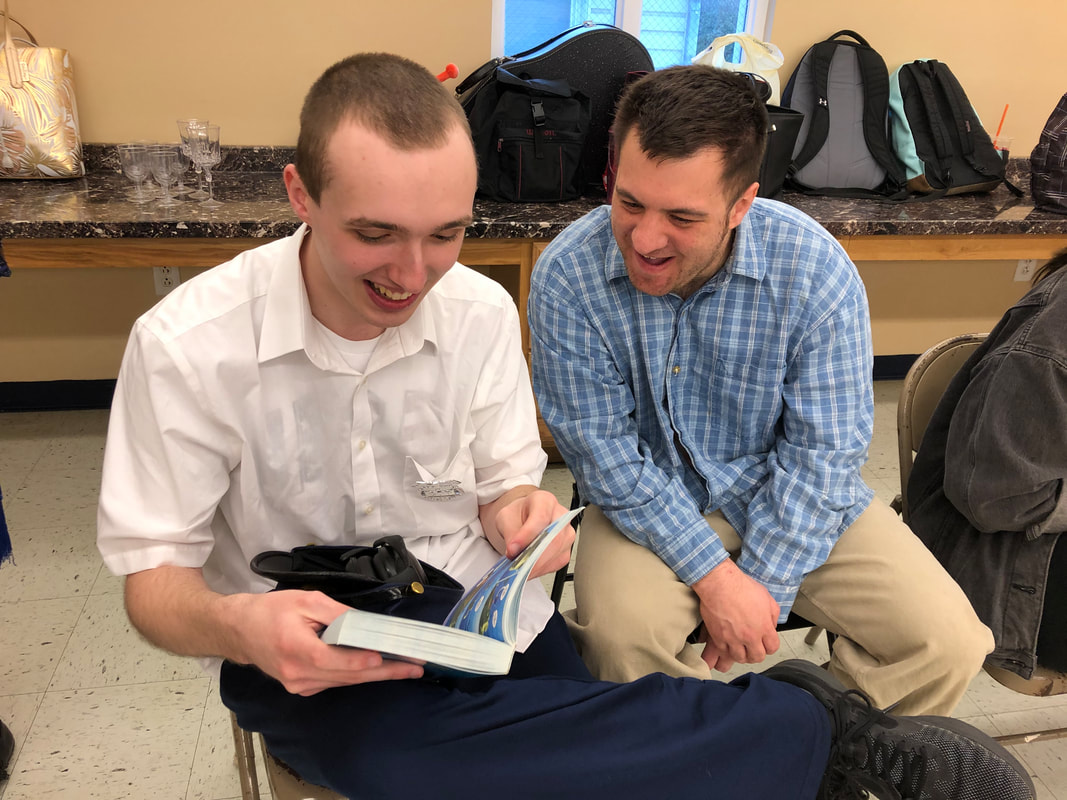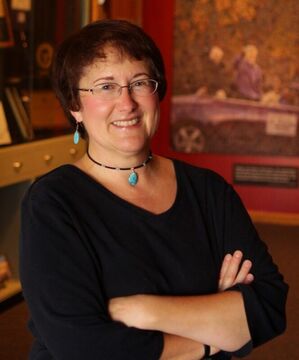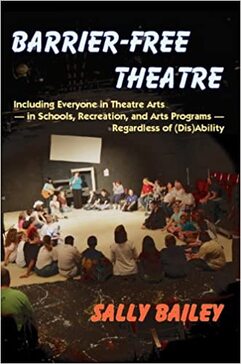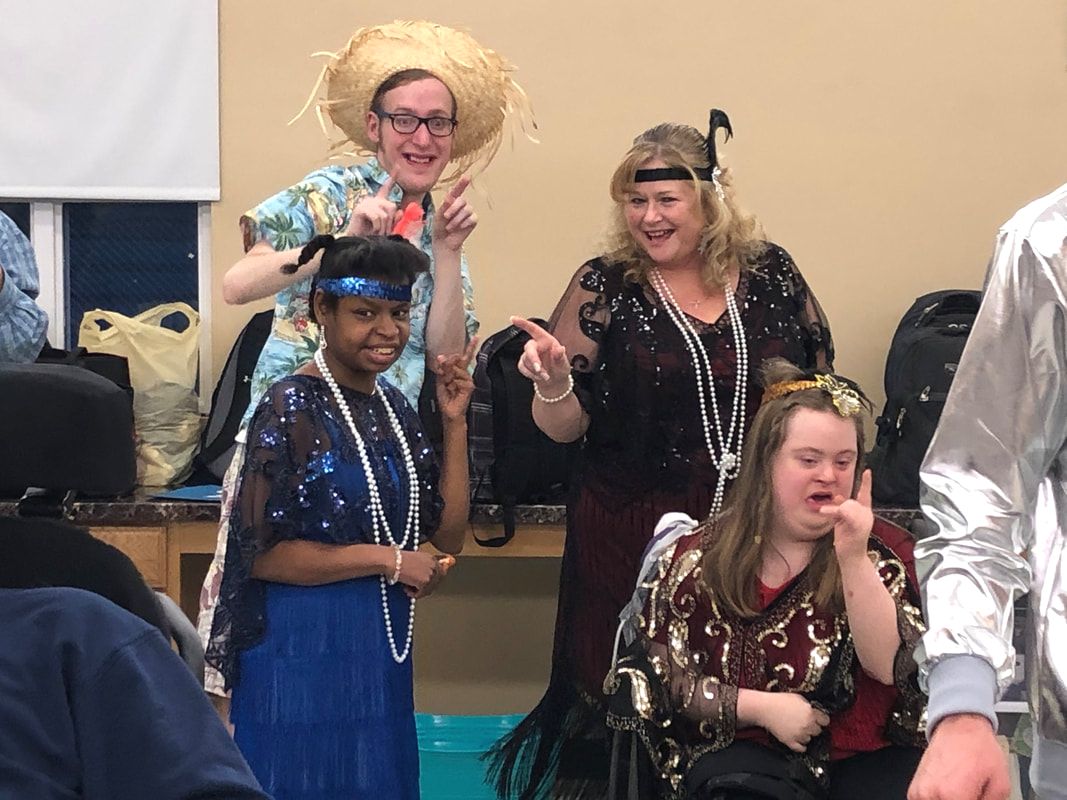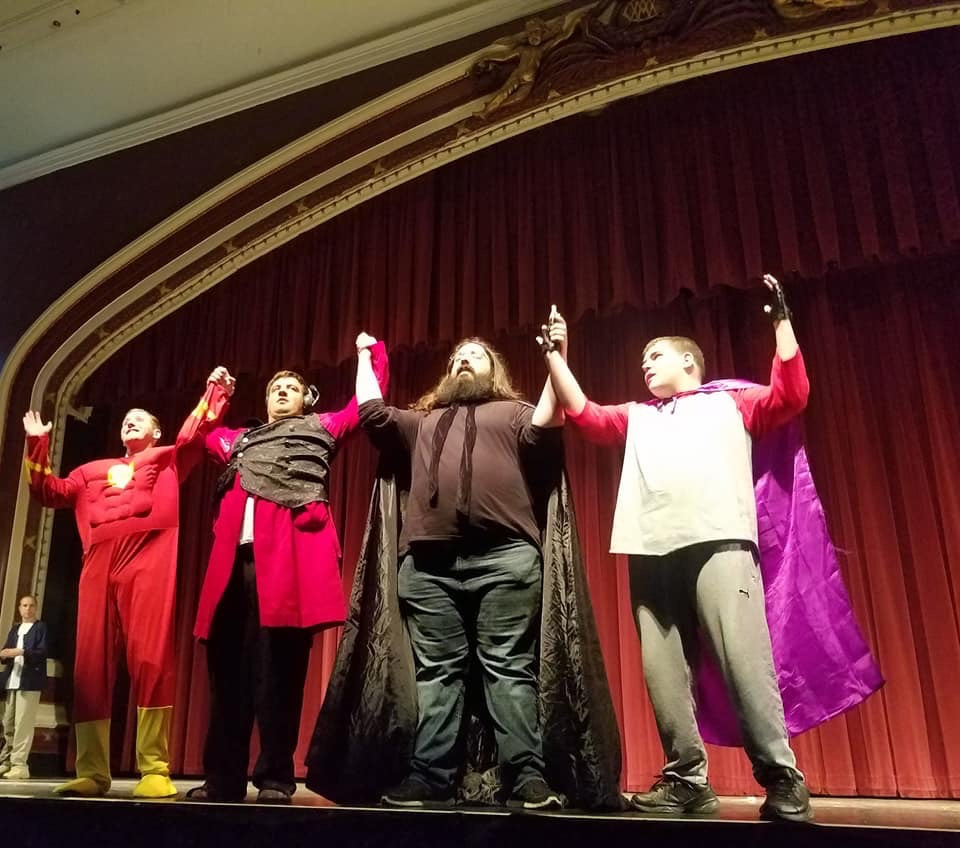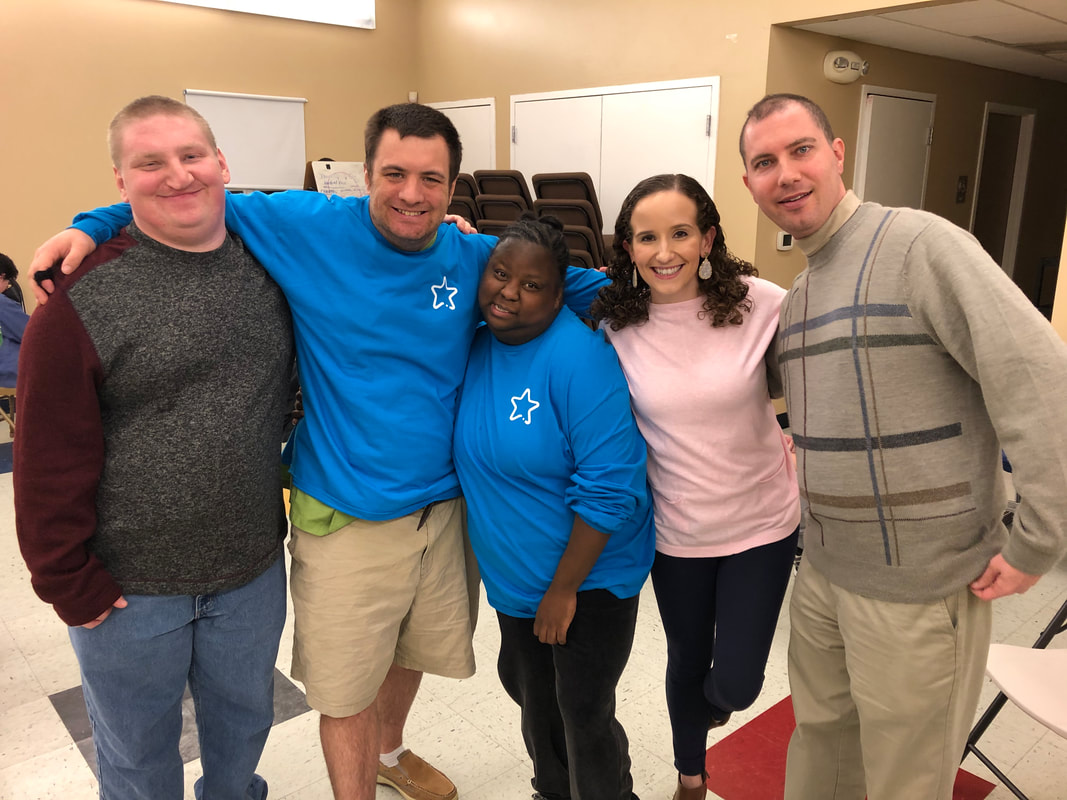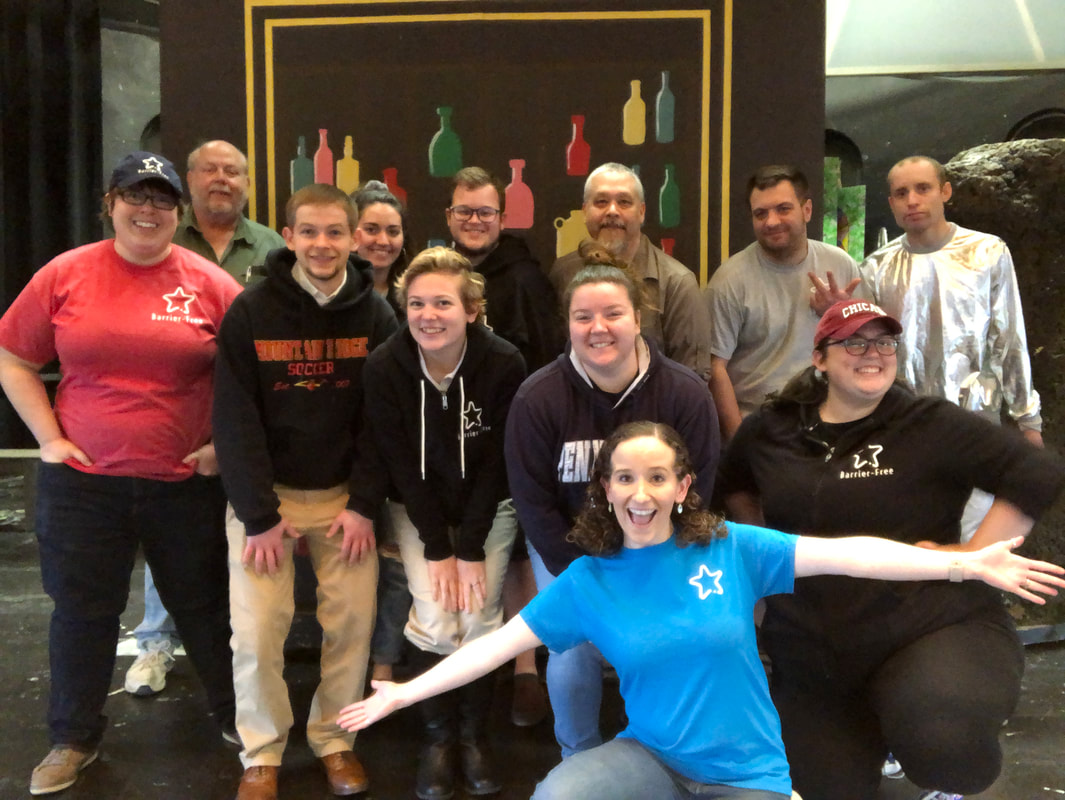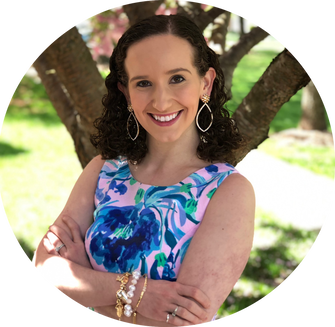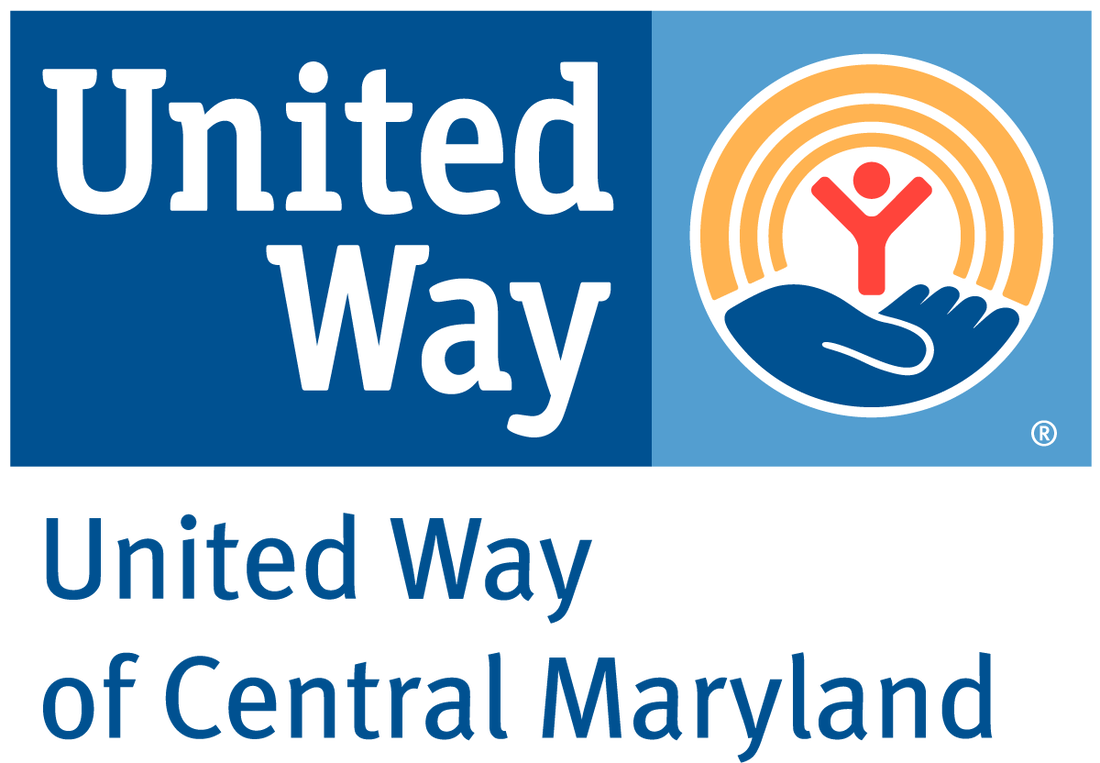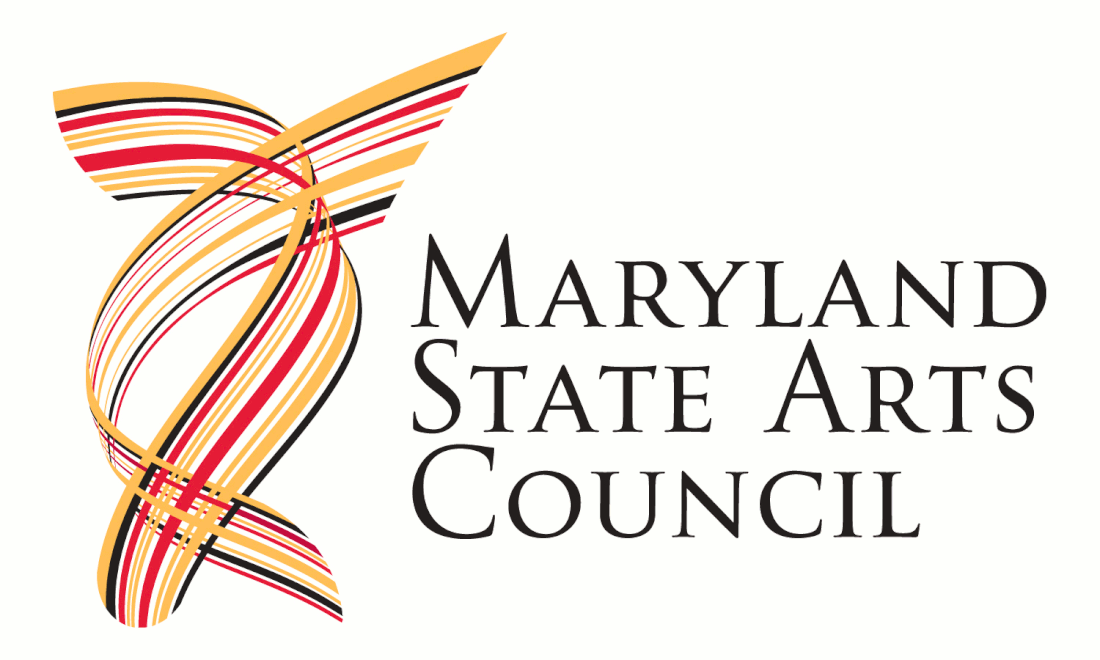|
Have you ever wondered what is so special about inclusive theater? You've seen our posts, pictures, and maybe even a show, but here's the inside scoop as to what we think sets inclusive theater apart from the rest. 1. Inclusive theater brings together people of varying abilities. Barrier-Free inclusive theater companies are comprised of approximately 25 people. Our actors are self-advocates who self-identify as having down syndrome, intellectual disabilities, autism, and/or developmental disabilities. Our actors work alongside our teaching artists who also act in our shows. In addition, Barrier-Free has a partnership with McDaniel College to welcome student interns into our companies. Our interns are pursuing a variety of degrees that include but are not limited to, psychology, theater, education, counseling, or biology (genetics). Our student interns have the opportunity to earn credit through their internships with Barrier-Free. When our company members come together in an inclusive space, we are all equal contributors to the inclusive theater process. Barrier-Free uses equitable practices to ensure all of our actors can succeed to their highest potential while working together towards our final production goal of bringing our show to the stage. 2. No idea is too crazy. At Barrier-Free our tagline is "Create. Express. Achieve." for a reason. The musicals our inclusive theater companies create are all original. We spend many weeks of our Inclusive Theater season exploring "improvisational acting." This means that our actors work together in small groups to create scenes. This scene-work begins with the instruction to "make an improv scene with a beginning, middle, and end." There is no given direction as to what setting, characters, or plot elements to include as our director is waiting to see what ideas our actors bring to the creative table. As these scenes are created, we discover common, reoccurring ideas. For example, we may see many scenes taking place on an island, or in outer space. Once we've determined a setting, we explore these in our improv scenes. We start to see actors connect to certain characters, and we encourage them to explore and develop these ideas. After we have settings and characters, we begin to explore plot lines. Our improv scenes now have more direction from the director. For example, the direction may be, "Your scene begins with lost travelers arriving to an island, finish the scene with your improv group." Every step of the improvisational acting is intentional and leads us to creating our final show. Once we've landed on a setting, characters, and plot our director brings the ideas to life with a final written script, and our music composer creates the original songs and scores for the shows. Next stop - rehearsing with our script! 3. Social skill work is embedded into the inclusive theater process. Inclusive theater rehearsals begin with everyone sitting in a circle, greeting one another. When you enter the space, before rehearsal starts you'll hear the room buzzing with conversations and excitement. These organic conversations are proof of the relationships and connections formed between actors. When rehearsal officially starts, we check-in about our weeks and share updates before warming-up. Check-ins are a time to practice conversation skills such as active listening, asking follow-up questions, and sharing responses of support for one another. Each rehearsal has built-in break time, another perfect opportunity for actors to socialize, take pictures, and spend time forming friendships and connections. Barrier-Free teaching artists use this time to ensure any newcomers are included into conversations, and help to facilitate social connection between actors. Just by engaging with one another during rehearsals, our actors are learning and enhancing their social skills. Want even more social-based programming? Barrier-Free offers a monthly social club outing where individuals of diverse abilities come together to enjoy all the community has to offer, foster new friendships, and develop a sense of confidence and independence in society. 4. We have an incredible founder - Sally Bailey.
Barrier-Free's Creative Director, Britt Burr, earned her M.A. in Drama Therapy from Kansas State University. While there, Britt studied under Sally Bailey RDT/BCT, MSW, MFA, and learned the Barrier-Free Theatre method. Sally has dedicated her career to using drama therapy methods to serve recovering substance abusers and individuals with disabilities. She now serves the field in her role as Director of Graduate Studies in Theatre and Director of the Drama Therapy Program, by educating future drama therapists on her Barrier-Free Theatre methodology. After graduating from K State, Britt returned home to Maryland and, with permission and continued guidance from Sally Bailey, brought Barrier-Free Theatre to her local community. In 2019, "Barrier-Free Theatre Company of Maryland" became "Barrier-Free" you know today, as we expanded our staffing, programming, and mission. While we have grown and expanded through the years, Barrier-Free will always be thankful for our roots and Sally Bailey for laying the foundation of this incredible work. Learn more at Sally's website http://www.dramatherapycentral.com/ 5. Our actors bring their character ideas to life. Have you ever wanted to be 1920's flapper? What about a permanent vacationer? Inclusive theater is the perfect outlet for all of actor's creative desires. As we develop a setting, our actors create a character that they enjoy. During the improvisational acting portion of our process, the actors and staff work on character development through their improv scenes. Our actors make intentional decisions about their character's personality, actions, and purpose in our show. Oh, and the character's names - chosen by the actors! As we say in our core values - no idea is too wacky, "we welcome it all at Barrier-Free!" 6. The curtain call. Ask any actor, and they'll tell you that the curtain call (when the actors take their bows) is very special to conclusion of a show. If you've never experienced a curtain call for an inclusive theater production - you're missing out and we recommend adding it to your bucket list immediately. Individuals with disabilities fight very hard for visibility, equality, and equitable treatment in society. At our inclusive theater performances, our actors have the opportunity to show how truly talented they are as they sing, dance, and perform their hearts out on stage! When our actors come center stage to take their bows, and hear the audience's applause, all for them, the reaction is priceless. In that moment, our actors have been seen, heard, and appreciated for their abilities and work. It is truly a magical moment. 7. Inclusive theater fills the heart. Our actors spend 7 months in our inclusive theater seasons, working to bring our shows to life. This means 7 months of:
Trust us... each inclusive theater rehearsal or show will leave your heart filled the brim with hope, love, and inspiration. So... if these seven reasons why inclusive theater is the best type of theater still haven't convinced you, we invite you to come check out our work for yourself. We have a feeling that if you just come once, you'll be hooked. So what's stopping you? Find out about volunteering opportunities on our website or contact us at [email protected] to get started.
1 Comment
I never took into account the fact that the curtain call is a great way to conclude a show that we should experience. I guess I really have to wait until the end of a comedy theater show that I want to attend. It will be my first time as well, so I might as well prevent being late and actually sit and finish everything until the very end.
Reply
Leave a Reply. |
About our BlogThe Barrier-Free blog exists as a space to share Barrier-Free news, helpful information, and a creative sharing space. Archives
March 2024
Categories
All
|
|
Copyright © Barrier-Free 501(c)(3) All rights reserved.
|
|

